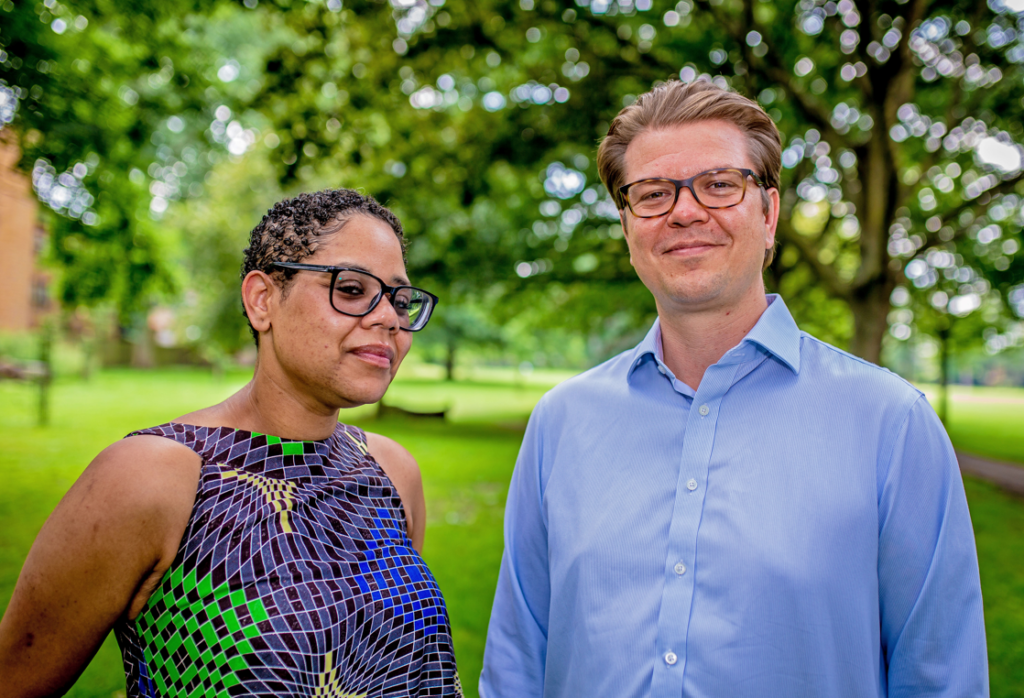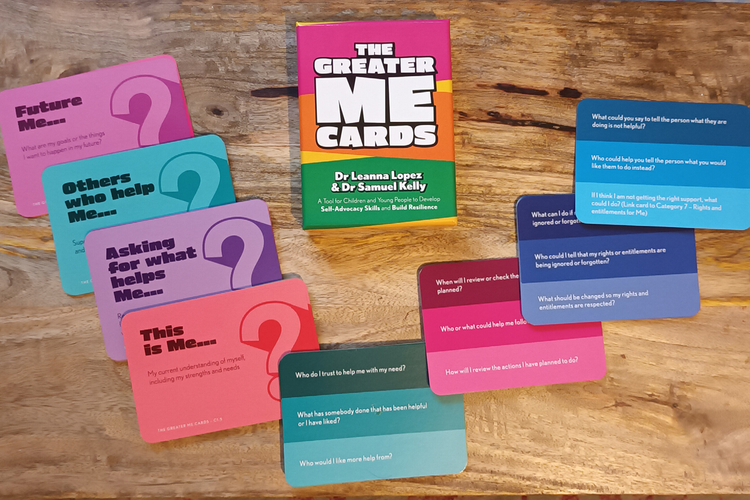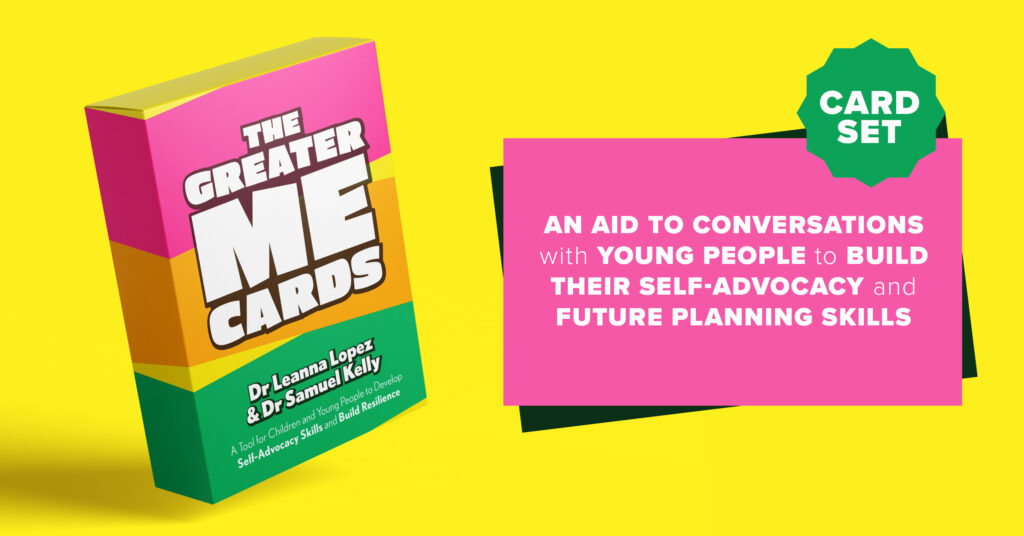Greater Self-Advocacy is Key: Unlocking Young People’s Potential for Greatness
Educational and Child Psychologists, Dr. Leanna Lopez and Dr. Samuel Kelly, reflect on the steps that led to turning their research into a set of empowering cards designed to enable young people to grow into their greatest self. ‘The Greater Me Cards: A Tool for Children and Young People to Develop Self-Advocacy Skills and Build Resilience‘ are available now.

What do dyslexia and diabetes have in common? Well, not a whole lot actually… which is why we found it all the more interesting when our respective research findings were really quite similar.
Leanna and I completed our doctoral research just a year apart, hers with young people managing their diabetes in school, and mine involving young people with dyslexia, dealing with their transition to secondary school. We both met young people in our research who were very much taking their medical or learning need in their stride, managing independently and confidently. Sadly, we also both interviewed young people that were struggling, who were not managing their need effectively, to the point it was having an impact on their academic and social-emotional success. The severity of needs between those managing successfully and those who weren’t did not seem to make a significant difference, so why then did some young people thrive and others not?
Although we were working in completely different areas, we both found the most important factor for students managing their own needs successfully was how well they understood themselves – their level of self-awareness. Young people who had been supported to understand their medical or learning need felt more confident speaking about this to others. They recognised their own strengths and needs, and could better communicate and request the support they needed to be successful. Conversely, young people with a very poor understanding of themselves struggled to do any of those things independently.
Taking the finding of our research, Leanna and I identified two main psychological principals which affected young people’s ability to manage their need independently. Firstly, self-advocacy, which can be defined as a person’s ability to effectively articulate, communicate and negotiate their own desires, goals, interests, needs, and rights. Common elements include:
- Understanding one’s own disability or difference, including strengths and needs
- Knowledge of individual rights
- The ability to successfully request the support needed
- Effective leadership skills

The second principal was personal resilience – we recognised successful young people had personal qualities, traits and perceived support available to them that they used to manage difficult situations. Personal resilience can be defined as the flexibility that allows certain young people who appear to be at risk to overcome adversity, to cope with and manage major difficulties and disadvantages in life.
In some respect, these finding are obvious – It’s impossible to manage needs you don’t understand, don’t have the language the explain, don’t feel you have the right personal resources for, or when you have never been shown strategies that might help or offer a workaround! Yet neither of us could believe how many young people we met who had been identified as diabetic or dyslexic, and nobody had properly explained to them what this meant, or what the implications were.
We knew at this point we needed to develop a tool which started the conversations between young people and adults about their medical need, learning difference, disability, mental health or simply their strengths or things they need more help with. We spend the next couple of years collaborating with young people and professionals, in order to produce the Greater Me Cards.
The Greater Me Cards are built on the fundamental belief that the views and aspirations of children and young people should be listened to, respected and supported. They should be central in planning relating to their life, provision, support and goal setting.

The overlap in our research findings highlighted the need for a tool which can be used by any child or young person who is interested in, or could be helped by having, a more structured conversation about themselves. This includes the steps they can take to move towards meeting their greatest potential and managing their needs more independently.
The ultimate goal of the Greater Me cards is to enable and support young people to be a self-advocate by understanding themselves better, and knowing what they need to be successful. The cards facilitate conversations which help them to gain this insight, but they also help young people recognise the qualities associated with their personal resilience and resources that can enable them to be a greater self-advocate in practice. By working in a person-centred way, the young person’s views and aspirations sit at the heart of these conversations and a space is provided which empowers and allows the young person to be their own advocate.
The Greater Me Cards are organised into 10 self-advocacy based categories covering, understanding strengths and needs, feelings and communication, how to seek help, rights and entitlements, and many more useful topics to develop resilience. There are around 150 questions which can be used flexibly by young people and facilitating adults. The cards also include several categories which help the young person to begin planning how they will take their actions forward, and the steps they will take to share their ideas and begin their journey towards independence and their greatest self.
Get your copy of Dr. Lopez and Dr. Kelly’s excellent conversational card set, ‘The Greater Me Cards: A Tool for Children and Young People to Develop Self-Advocacy Skills and Build Resilience.’